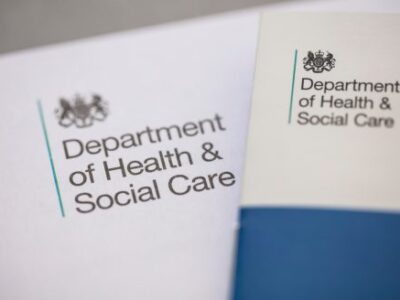A hospital trust failed to send out 24,000 letters from senior doctors to patients and their GPs after they became lost in a new computer system, the BBC has learned. Newcastle Hospitals has warned that the problem, which dates back to 2018, is significant. The healthcare regulator has sought urgent assurances over patient safety. Staff have been told to record any resulting incidents of patient harm and ensure these are addressed. Following a routine inspection by the regulator – the Care Quality Commission (CQC) – in the summer, staff at the trust raised concerns about delays in sending out correspondence.

A subsequent review of the trust’s consultants revealed that most had unsent letters in their e-record account. Most of the letters explain what should happen when patients are discharged from the hospital. However, a significant number of the unsent letters are written by specialist clinics spelling out care that is needed for patients. A source at Newcastle Hospitals told the BBC that consultants had raised issues about the electronic patient record system for years, complaining it was slow and hard to use, but had not been listened to. In a letter sent to staff about the problem, and seen by the BBC, the Newcastle trust explains that letters drafted by one member of staff have to be signed off by a second clinician before they can be sent. If that doesn’t happen, letters end up in a consultant’s document folder and remain unsent until they are signed off correctly.
Impact on patients
Sarah Dronsfield, the CQC’s interim director of operations in the North, said: “We took immediate action to request further detail from the trust to understand the extent to which people may be at risk, and evidence of the steps being taken to review the impact on patients, ensure people are safe and mitigate any risk of avoidable delays in treatment going forward.” She said the trust had submitted an action plan and volunteered to provide weekly updates on its progress against that plan. The trust says it will immediately deal with a 6,000-letter backlog from the last year alone. More than 1,200 of these relate to medicine and emergency care. Some letters may be duplicates, or created in error.
In a separate letter seen by the BBC, Newcastle Hospitals told senior doctors that the CQC was worried about the impact on patients. Dr George Rae, a GP and chairman of the North East BMA Council said there would be “an incredible amount of information” within the letters. “If you didn’t get the letters, you wouldn’t have the results of scans and X-rays or blood tests.” He said GPs would be “absolutely unaware” of a change in medication or treatment if a patient had gone to hospital and received a significant diagnosis.
‘Sincerely apologise’
Martin Wilson, Newcastle Hospitals’ chief operating officer, said he wanted to reassure patients that “we are taking immediate steps to address the issue”. “We sincerely apologise for any anxiety or inconvenience this may cause,” he added. The hospital trust said it was working to understand if there had been any impact to ongoing care and treatment of patients.

It is currently reviewing 24,000 documents from its electronic records, which accounts for less than 0.3% of all contact with patients, the trust says. “If any concerns are identified, we will inform patients and their GP’s directly,” Mr Wilson said. “We are taking this issue very seriously and are working quickly to put things right.” The CQC said it was monitoring the trust closely and could inspect it at any time if it had concerns. “We will report on the full findings from our latest inspection and any areas where the trust has been required to make improvements as soon as we are able to,” it said. “If anyone has any concerns about the care they have received they can let us know directly.”
![]()





